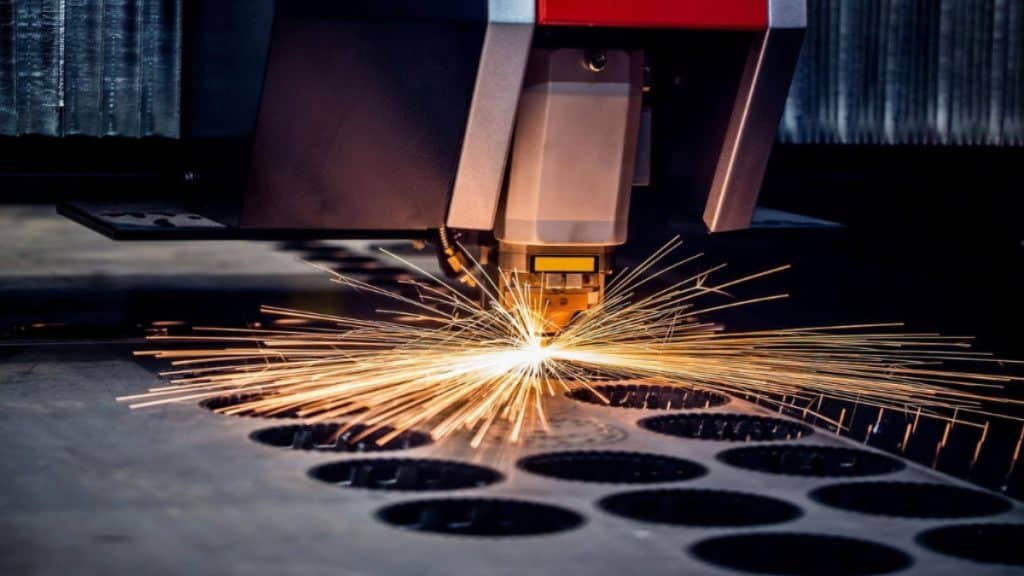Custom metal fabrication offers versatility by allowing the creation of tailored metal components to meet specific design and functional requirements. Benefits include high precision, durability, and the ability to produce complex shapes. It serves diverse industries, from automotive to construction, enabling innovative solutions and enhancing product performance and longevity.
Introduction
The world of metal fabrication is vast and continually evolving. Whether you’re building skyscrapers or crafting intricate automotive parts, the need for expert metal fabricators near me has grown significantly. Custom metal fabrication, in particular, offers a flexible and tailored approach to meet diverse project needs. In recent years, industries have increasingly leaned on custom solutions to enhance efficiency, precision, and overall product quality.
The demand for skilled metal fabricators has increased in various industries, including automotive and construction, due to the need for efficiency and customization. This article explores the benefits and sectors that rely on custom metal fabrication, providing valuable insights for those seeking its potential.
What is Custom Metal Fabrication?
Custom metal fabrication is a process that creates metal parts and structures tailored to specific requirements, involving steps like cutting, bending, welding, and assembling. This unique and adaptable approach caters to various needs, from small-scale bespoke projects to large industrial productions. It begins with a detailed design and planning phase, followed by precise execution, ensuring the final product aligns perfectly with client demands. This meticulous attention to detail makes custom metal fabrication a preferred choice across multiple industries.
Advantages of Custom Metal Fabrication
- Tailored Solutions: Custom fabrication ensures that products meet exact specifications, providing unparalleled precision and personalization. This is particularly important in industries where standard solutions fall short, and specific requirements must be met to ensure functionality and compatibility.
- Cost-Effectiveness: By producing only the required parts, custom metal fabrication minimizes waste and reduces overall costs. This efficiency in resource utilization can lead to significant cost savings, especially in large-scale operations where material waste can add up quickly.
- Quality Control: The process allows for stringent quality checks at various stages, ensuring the final products meet the highest standards. Customized production often involves rigorous testing and validation, guaranteeing that each piece meets the specified criteria.
Custom metal fabrication offers significant flexibility. Clients can specify materials, finishes, dimensions, and other parameters, resulting in products that perfectly match their needs, a unique advantage not achievable with standard methods.
Industries Benefiting from Custom Metal Fabrication
Custom metal fabrication is crucial in various industries, including automotive, construction, aerospace, and medical. Automotive requires high-precision components for assembly and repair, ensuring safety and performance. Construction projects often require unique metal structures and fixtures, enhancing the aesthetic and functional value. Aerospace demands precision and reliability for components, ensuring each piece meets rigorous standards and performs flawlessly under extreme conditions. Because medical devices and equipment must satisfy particular requirements to comply with regulations and guarantee patient safety, the medical industry also benefits from bespoke metal fabrication.
Cutting-edge Technologies in Metal Fabrication
Technological advancements have significantly improved the metal fabrication process. The sector has transformed due to innovations like robotic welding, water jets, and laser cutting. These innovations not only enhance precision but also boost production speed and efficiency. To learn more about the impact of these technologies on metal fabrication, you can refer to the detailed studies on The Fabricator.
Laser cutting offers precision for intricate designs and complex geometries, while water jet cutting handles various materials with minimal heat distortion. Robotic welding improves accuracy and repeatability, reducing human error and increasing production speeds. Digital technologies like Computer-Aided Design and CAM systems have transformed metal fabrication, enabling precise process planning and execution, creating detailed schematics and simulations, and ensuring final products meet design specifications.
Choosing the Right Metal Fabrication Partner
Selecting a reliable fabrication partner is crucial for project success. Consider factors such as the company’s experience, technological capabilities, and commitment to quality. Additionally, confirm that the fabricator has a history of on-time delivery and can handle your particular requirements. This helps mitigate potential risks and ensures the success of your project. A reliable partner should also be able to provide comprehensive support from initial design to final production.
It is also essential to assess the fabricator’s portfolio and client testimonials. This may provide information about their skill level and the caliber of their output. Meeting with the fabrication team and discussing your project in detail can further help you gauge their expertise and willingness to collaborate effectively.
The fabricator’s comprehensive services, including design, fabrication, finishing, and installation, can streamline the project process, ensure cohesive results, and save time by reducing coordination with multiple vendors, thereby reducing complexities.
Future Trends in Metal Fabrication
The metal fabrication industry is undergoing significant transformations due to the integrating of artificial intelligence (AI) and IoT technologies. These technologies will improve efficiency and productivity by enabling real-time monitoring, predictive maintenance, and automated quality control. Sustainable fabrication practices, such as material recycling and energy-efficient processes, are also gaining traction. Additionally, 3D printing is emerging as a cost-effective solution for creating complex geometries and reducing material waste. As additive manufacturing technology evolves, its applications in metal fabrication will expand, offering new opportunities for innovation and customization.
Conclusion
Custom metal fabrication is a crucial industry offering tailored, cost-effective, high-quality solutions. Its adaptability and precision make it an essential part of modern manufacturing practices. As technology advances, the future of metal fabrication looks promising, enhancing efficiency and sustainability. It’s applicable in various sectors like automotive, aerospace, and construction, providing a reliable solution for specific needs.
